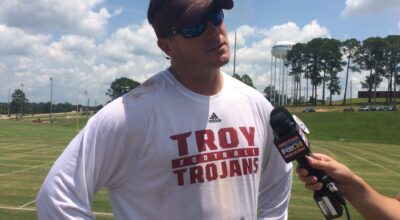Pediatrician: Give kids HPV vaccination
Published 11:00 pm Wednesday, August 7, 2013
If you could vaccinate your child against diabetes, heart disease, or cancer – would you do it? I am a pediatrician and mother of three, and I know that my answer would be a resounding “Yes! Where do I sign up?” So, it is a surprise to me that the number of 11-year olds that receive the HPV vaccine (recommended by the Centers for Disease Control, the American Academy of Pediatrics, and the American Academy of Family Physicians) remains so low.
August is National Immunization Awareness Month. In order to join in the spirit of the month, I would like to share with your readers some information about the HPV vaccine.
HPV stands for human papilloma virus. There is an entire family of human papilloma viruses that can cause both mild and life-threatening diseases. While it is true that the most worrisome of these viruses are spread through sexual contact, nearly ALL people will become infected with one of these viruses during their lifetime. A study between 2004–2008 estimated that HPV causes approximately 26,000 cancers each year each year. These include cervical cancer, vulvar/vaginal cancers, anal cancers and mouth/throat cancers. Women aren’t the only ones affected. At least 8,000 of these cancers occur in men!
It is estimated that HPV vaccination could prevent most of these cases.
Most parents I know agree that preventing cancer would be great, but they still have questions.
The first question typically is, “is it safe?” Before the HPV vaccine was licensed, it was studied in thousands of people in the U.S. and around the world and found to be safe. Since it has been licensed, over 46 million doses have been given. Like all vaccines, it continues to be monitored and it is still found to be safe. The most common side effects are pain where the shot is given, fever or nausea. Occasionally, fainting after HPV has been reported. About 4 in 100 people will faint sometime in their life and it is more likely to occur after painful or frightening events (like getting a shot!).
Finally, even parents who understand the value of the vaccine and agree that it is safe still wonder, “why now? Why can’t we wait until they are older?” While it is important to vaccinate kids before any sexual contact (after all, the vaccine cannot prevent disease once you are already infected), that isn’t the only reason the vaccine is offered to 11-year olds. A more important reason is that, during childhood and early adolescence, your child’s immune system is more effective at generating a response to the vaccine. In other words, if you wait too long, the vaccine may not work as well.
As a pediatrician, I am truly interested in what is best for your child. I recommend getting the entire HPV series on time because I want to protect your child against this type of cancer, and I know you do too. For more information, go to www.healthychildren.org or www.cdc.gov, or talk to your pediatrician. After you’ve had all your questions answered, make an appointment to start the series right away. Let’s give our children the best chance possible at a healthy life! #AlabamaKidDoc
Nola Earnest, MD, PhD
Troy


